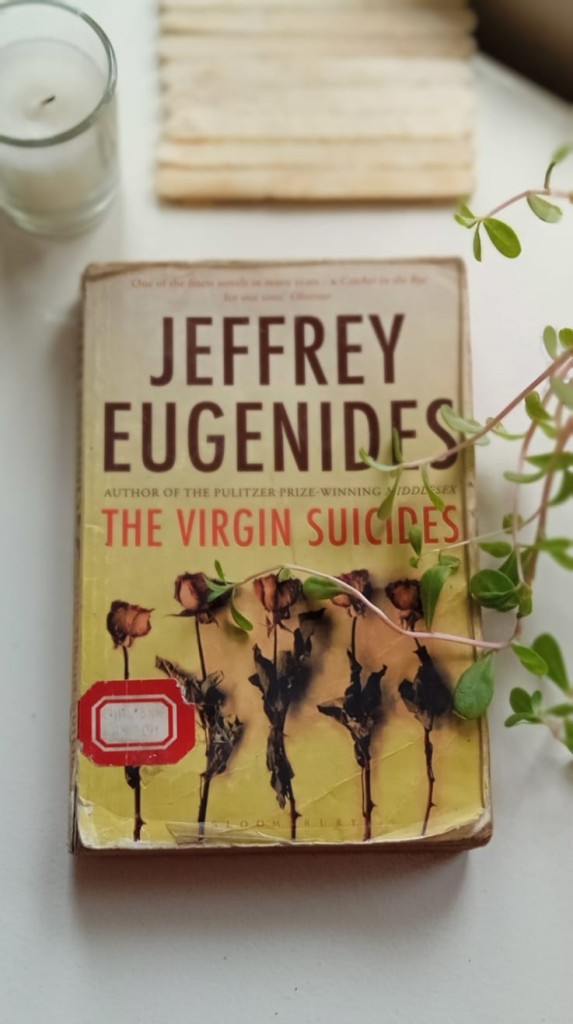“In this dark, there will be light, will you help us?”
Did the Lisbon sisters really want to be helped or was it all a perverse performance? I have no answers.
Dark and weirdly nostalgic, The Virgin Suicides is a novel that reads like true crime. The story is narrated from the POV of a group of unnamed boys who chronicle the events leading up to the mysterious deaths of the elusive Lisbon sisters.
For the boys what starts as a harmless fascination for the Lisbon sisters soon turns into an unhealthy obsession, one that lasts all their lives. They are bewitched by the curious and sheltered upbringing of the Lisbon sisters. They spy on the girls from their backyards, car hoods, through the windows of their homes, trying desperately to understand who they are and what they like. Following the suicide of Cecilia, the youngest Lisbon sister, they try to gather evidence to comprehend why she did what she did. And when all of the Lisbon sisters meet the same fate, they continue with their investigation trying desperately to uncover the secrets behind their untimely deaths.
As one approaches the end of the novel one frustratingly realizes that the mystery of the suicides will go unsolved. The deaths of the Lisbon sisters, just like their lives are an enigma. The boys initially look upon the Lisbon sisters as damsels in distress waiting to be rescued but in the end, the girls take on a larger-than-life quality.
“The girls took into their own hands decisions better left to God. They became too powerful to live among us, too self-concerned, too visionary, too blind.”
This line reminded of a similar one in Shashi Deshpande’s If I Die Today . “It seems to me that he had begun to see himself as a spectator from all of us. That’s when a man becomes dangerous. Yes dangerous because he imagines himself God and loses touch with humanity.”
Maybe the Lisbon girls lost touch with their humanity too. There is no way of knowing.
On a side note, The Virgin Suicides makes multiple references to Indian culture – the Harekrishnas, God Krishna, which I found fascinating.
The novel with its descriptions of fishflies obscuring everything in sight and the dying elm trees is reminiscent of a horror movie. It also attempts to be an investigative piece with its recurrent use of legal language. The fishflies, dying elm trees, the strike of the cemetery workers are clearly motifs symbolizing death.
The rot and decay of the outside world ultimately worms its way through the Lisbon house spelling disaster for the entire neighbourhood. For the boys, the death of the Lisbon sisters is not a local tragedy but a defining period in their lives –of collective trauma, heartache, and lost childhood.
There’s more to the novel than meets the eye. It is a commentary on coming-of-age, religion as an oppressive force, and the destructive nature of grief. If you are up for a dark and brooding read that will leave you perplexed, then look no further.

